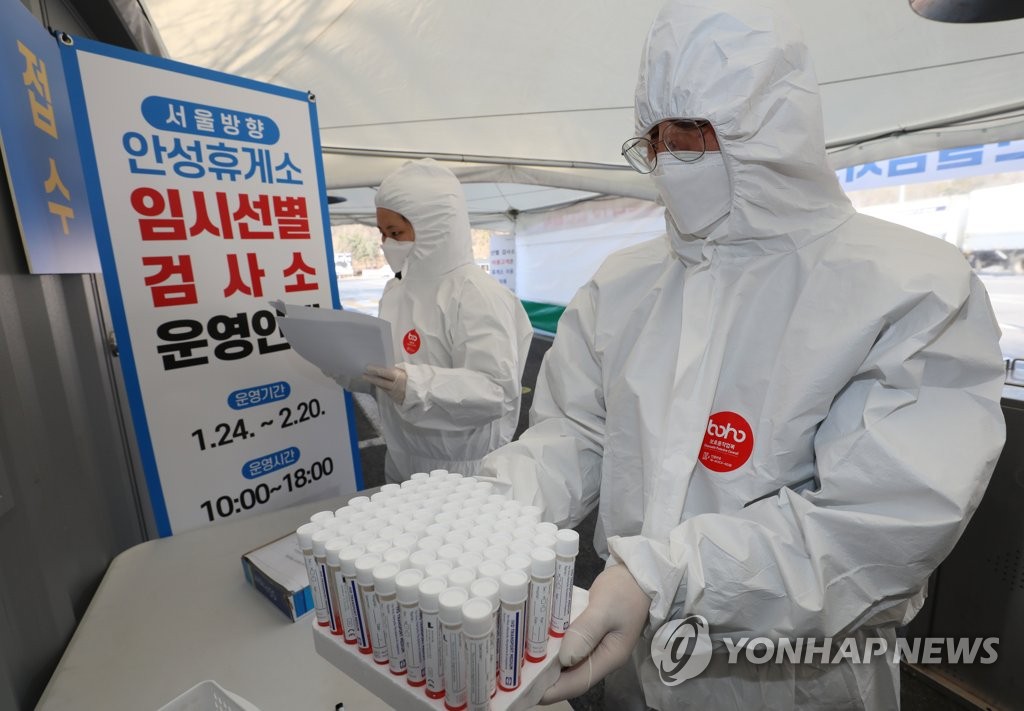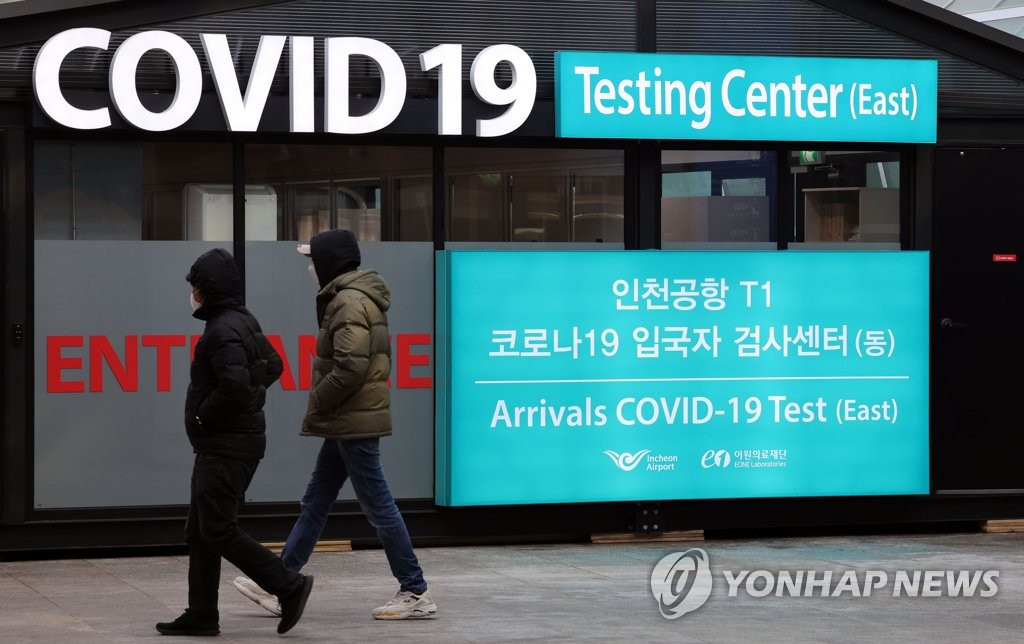- California Assembly OKs highest minimum wage in nation
- S. Korea unveils first graphic cigarette warnings
- US joins with South Korea, Japan in bid to deter North Korea
- LPGA golfer Chun In-gee finally back in action
- S. Korea won’t be top seed in final World Cup qualification round
- US men’s soccer misses 2nd straight Olympics
- US back on track in qualifying with 4-0 win over Guatemala
- High-intensity workout injuries spawn cottage industry
- CDC expands range of Zika mosquitoes into parts of Northeast
- Who knew? ‘The Walking Dead’ is helping families connect
New COVID-19 cases above 7,000 for 3rd day amid persistent omicron fears
South Korea’s daily coronavirus cases stayed above 7,000 for the third straight day Monday amid deepening concerns over the fast spreading omicron variant that has become the dominant strain in the country.
The country added 7,513 new COVID-19 infections, including 7,159 local infections, raising the total caseload to 741,413, according to the Korea Disease Control and Prevention Agency (KDCA).
The latest tally almost doubled from last Monday’s 3,857. It marks the fourth-largest daily figure since the pandemic began two years ago and the biggest recorded for a Monday. The record high to date was 7,848 on Dec. 15.
Daily infection tallies tend to slow on Mondays due to fewer tests on the weekend, but the fast spread of omicron appears to be breaking the trend.
As of 6 p.m. Monday, the country had reported 5,869 new COVID-19 cases, sharply up 1,454 from the same time the previous day, according to health authorities and city governments. Daily cases are counted until midnight and announced the following morning.
The government said the omicron variant is now the dominant COVID-19 virus strain in South Korea, citing its detection rate that reached 50.3 percent last week. The country added 4,830 more omicron cases over the past week, putting the total at 9,860, the KCDA said.
Prime Minister Kim Boo-kyum asked people to refrain from traveling and visiting their hometowns during the Lunar New Year holiday to help contain the omicron variant.
“It will be no different from pouring fuel on a burning fire,” Kim said, referring to potential dangers of a massive hike in travel during the holiday that runs from Jan. 31 to Feb. 2.
The daily average of confirmed patients hit 5,962 last week, a 50 percent increase from the previous week, the government said, vowing to respond effectively to omicron-hit areas.
Although the fatality rate of the omicron variant is 0.16 percent, far lower than the delta variant’s 0.8 percent, its fast spread among high-risk patients could lead to a surge in critical cases and deaths, KDCA Commissioner Jeong Eun-kyeong said in a briefing.
“Due to its high transmission ability, we believe that, if a large-scale outbreak occurs within a short period of time, it could put a serious strain on the antivirus and medical response,” Jeong said.
The KDCA revised up the national COVID-19 risk level to “very high,” the highest in a new five-scale system that determines the degree of danger.
The death toll from COVID-19 came to 6,565 on Monday, up 25 from Sunday. The fatality rate stood at 0.89 percent.
The number of critically ill COVID-19 patients came to 418, down 13 from Sunday.
To stem the spread of omicron, the government said it will implement a new medical response system focusing on early virus detection and treatment for high-risk groups, such as elderly people and those with underlying diseases.
People in low-risk groups will take rapid antigen tests at testing stations. Polymerase chain reaction (PCR) tests will be carried out on high-risk groups.
The self-quarantine period for unvaccinated patients will be shortened to seven days from the current 10. Fully vaccinated people will be subject to monitoring instead of undergoing a quarantine if they test positive for the virus.
The government will first adopt the new medical response system Wednesday in parts of the country’s southwest and Gyeonggi Province near Seoul, where the omicron variant is spreading fast, before deciding when to implement the new omicron response system nationwide.
Of the locally transmitted cases, Seoul reported 1,626 new COVID-19 cases, the surrounding Gyeonggi Province added 2,391, and the western port city of Incheon reported 552.
The number of imported cases was tallied at 354, bringing the total to 23,753.
As of Monday, 43.8 million people, or 85.4 percent of the country’s 52 million population, had been fully vaccinated, and 25.24 million, or 49.2 percent, had received booster shots, the health authorities said.












![일본 사도광산 [서경덕 교수 제공. 재판매 및 DB 금지]](http://www.koreatimesus.com/wp-content/uploads/2024/07/PYH2024072610800050400_P4-copy-120x134.jpg)


